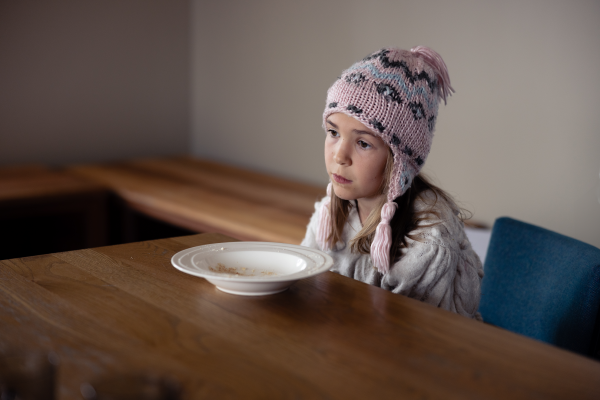Op-ed by Pam Elgar (Ngāruahine, Te Atiawa), interim Chief Executive Officer (interim Kaiwhakahaere Mātua) of Presbyterian Support Northern (PSN).

He waka eke noa – the Maori proverb says we’re all in the same waka, we’re all in this together.
But the problem is, as Scottish writer Damian Barr says: “We are not all in the same boat. We are in the same storm. Some of us are on superyachts. Some of us have just the one oar”.
And right now, the storm is affecting more of us negatively than we have seen before.
This isn’t just those not working and on benefits: this is stretching across all of society – those in work, with mortgages, homeless, single parents and couples.
This feels like the winter of high anxiety. With the recession biting deeper, with the cost of living rising, with proposed budget cuts to services, I really think the uncertainty of not knowing what is around the corner is adding to pressure already impacting on stress and raising anxiety.
As we head deeper into the cold weather, it feels like people are crawling from one week to the next.
At Presbyterian Support Northern (PSN), we see increasing numbers of people desperate for budgeting assistance, more families at our food banks, and high numbers of those calling our Lifeline services to talk about their anxiety, suicidality, bullying, and inability to pay bills.
Family Violence appears to have risen markedly up from last year.
For example, our Shine helpline has seen a 44 per cent increase in calls from this time last year, from 2249 calls in the third quarter last year to 3252 calls in the same time this year. And our Webchat service has seen an increase of 61 per cent over the same period.
We believe it’s the recession that is making the big difference: increasing financial pressure is exacerbating the stress people are already under.
We’re also seeing the level of violence has gone up markedly including those involving the use of weapons (like knives and machetes) and strangulation. The number of serious assaults occurring in front of children has also gone up.
There has been a marked jump in calls from single women, including pregnant single women.
We are seeing lots of mental health issues (including in our refuges) and brain injuries from assaults.
On top of the recession, the rental housing crisis means our clients can’t find accommodation. There are fewer and fewer options and the pool of emergency accommodation is shrinking. Boarding houses are not safe.
Our clients need food support and support to get the basics, including toiletries.
At our social food pantry in Auckland, one of the main reasons people give for requesting food support is ‘had to pay bills’. This is a worrying trend and it lays bare the impact of the cost of living crisis: these families cannot afford food after paying their rent and bills.
In our budgeting services, we are continuing to see increasing numbers of people wanting our help to make KiwiSaver financial hardship application withdrawals including to buy a second-hand car. These can be made if you need a car on health grounds, to pay debt arrears, or if your car has been repossessed or you need it for work and can’t borrow.
We are seeing more of the second or third financial hardship applications (until they just run out of funds available to withdraw). People are entitled to make another application after a stand-down period of 13 weeks.
We believe that we are now living in a society where what we often refer to as the cost-of-living crisis needs to be reframed as a pandemic of poverty, the sources of which are many.
People are living hand to mouth, pay packet to pay packet, which leaves them with no room to move.
If they live in a damp, mouldy home that makes them sick, they can’t work. Or they can’t find anywhere to live, so they can’t work. If their car breaks down, they can’t get to work.
They have aspirations for themselves and their whānau and are working hard to get ahead. However, they’re caught in a spiral of instability from which it is difficult to recover and are losing hope.
None of this is new.
We have kids growing up whose parents don’t have jobs. Their grandparents didn’t have jobs. For them, a life in poverty is normal and potentially to be expected.
What is new is the scale of impact.
We’re not all in the same, comfortable boat.
But we all pay the price for letting increasing numbers of people flounder in a leaking inflatable with one oar.
To support PSN’s Family Works ‘Heat or Eat’ campaign, please click here.